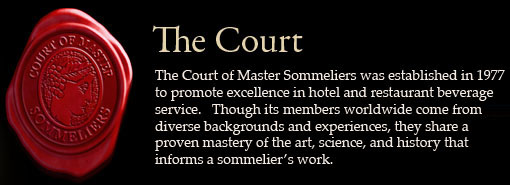I recently discovered a blog written by a surgeon who works in South Africa. His writing style is excellent and it is worth reading. One of his most striking (and as a warning, graphic) posts is what I came across first. But his most recent (not-to-be-taken-too-seriously) posts about the relationship between surgeons and anesthesiologists triggered a fond remembrance of my three-month rotation through surgery in medical school.
It was my third year of medical school. I had already completed a few weeks of my surgery rotation and found myself frequently scrubbing into cases with one of the more notable surgeons on staff, whom I will dub Dr. X for the purpose of this blog. He was known among the students as being intimidating – stature not-withstanding – and his European accent just exaggerated the effect. He had a gruff, no-nonsense temperament. I am not even sure I ever saw him smile. There was no playful banter during his cases, no music. Just seriousness.
In one particular operation, I was in charge of retracting the liver. This was no easy task for a young woman with thin arms. It was not a gentle, retraction, trust me. I had to use two hands, if I remember correctly, and exert a constant upward force for a long time as cuts were being made, sutures were being tied, and explorations were being done. I recall feeling the pulse of the heart transmitted to my hands. My job was to retract and I was going to do it steadily without a peep, like a good medical student.
But I also recall the bright lights of the OR and feeling warm. I recall not feeling quite like myself. Tiny sweat droplets started to form behind my mask. Then the worry set in. I had, by that time in clinical rotations, heard stories of medical student colleagues passing out, most of the time due to inadequate food intake prior to a long case. Any student who hears that story fears having a similar fate. I thought it would never happen to me, though, because I always made it a point to eat. In fact, this was my first case of the day and I had had a substantial breakfast.
Breakfast had not been enough that day, apparently. I felt as if all the blood was slowly draining out of my head to support the muscles keeping me standing and holding that retractor. I thought to myself, “Am I going to pass out? Should I say something?” Everyone was so focused and I wasn’t supposed to be the patient in this case.
My best judgment kicked in. “Joe?” I said. Joe was my quiet, but also no-nonsense, only-talk-to-me-about-important-clinical-stuff chief resident. He was diagonally across from me, at the patient’s thigh. He didn’t respond. Or did he? “Joe?” I said a little louder. “Yeah,” I finally heard him say. I was able to get the words out of my mouth. “I don’t feel well.”
It had been quiet in that OR until I said those words. Then in my muffled hearing, there were many voices, mostly indistinct. The surgeon was yelling something like “Step back! Step back!” The problem was that I was standing on a stool. In my state, I would have fallen backwards to the ground. So I didn’t step back. I felt like I couldn’t move, anyway, but I had to hold on to that darn retractor…. Oh, great. I just pissed off the surgeon.
In a quick series of events, someone grabbed my retractor and another held me by the waist, guiding me down to lay on the floor. Then my knight in shining… er, scrubs, came to my side. An older, seasoned Greek anesthesiologist held my wrist and felt for my pulse.
I slowly started to hear more clearly and see more clearly.
“What’s the blood pressure? “ Dr X barked.
“80s systolic, but it is coming up,” the anesthesiologist said about me. (This was just by palpation of my wrist, mind you).
“Not the medical student. I mean the patient. I don’t care about the medical student.”
Either I was suddenly brave or there was a lack of blood flow to the area of my brain related to inhibition, but at that moment, I said, “I heard that, Dr. X.” It was silent in the room except for a giggle from a nurse. I would like to think he was smiling inside, too.
There is always some level of embarrassment after an episode like that. I had to scrub in a few more times with Dr. X and wondered if he questioned my ability to stay upright during a case. Luckily, our relationship was not tarnished. In fact, I believed he had developed a a little bit of respect for me as a student (though he was not one to admit such things), particularly when I took over the role of a scrub nurse who was not immediately available at the start of an emergency case. I had observed Dr. X well enough to anticipate his needs and had developed enough confidence in working with him that I boldly interrupted a motion he was doing during that expedited surgery which would have resulted in a puncture wound to his hand. His response to that, by the way? A gruff “Hmmph” while continuing his work.
I often wonder what it is about the OR that encourages distinct personalities to come out or become amplified. Whatever it is, I fondly remember that anesthesiologist who tended to me when I was lightheaded, despite the fact that there were other nurses around to do so. But I have to admit that I also had a soft spot for that surgeon who was hard to crack.














